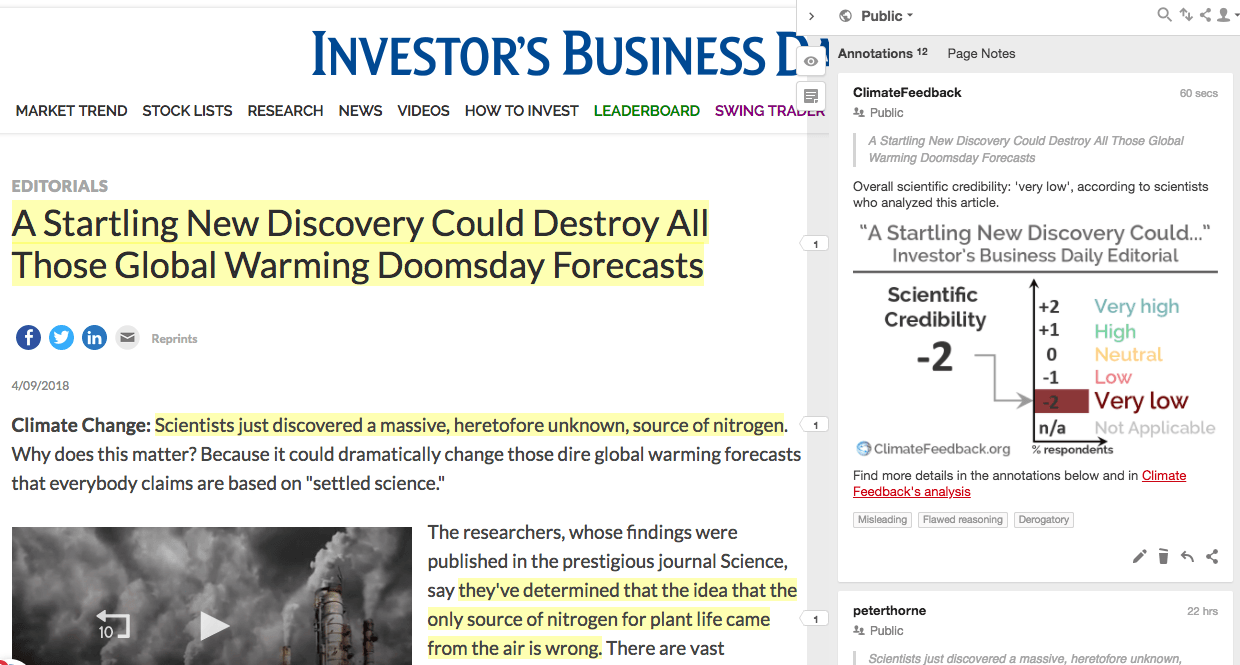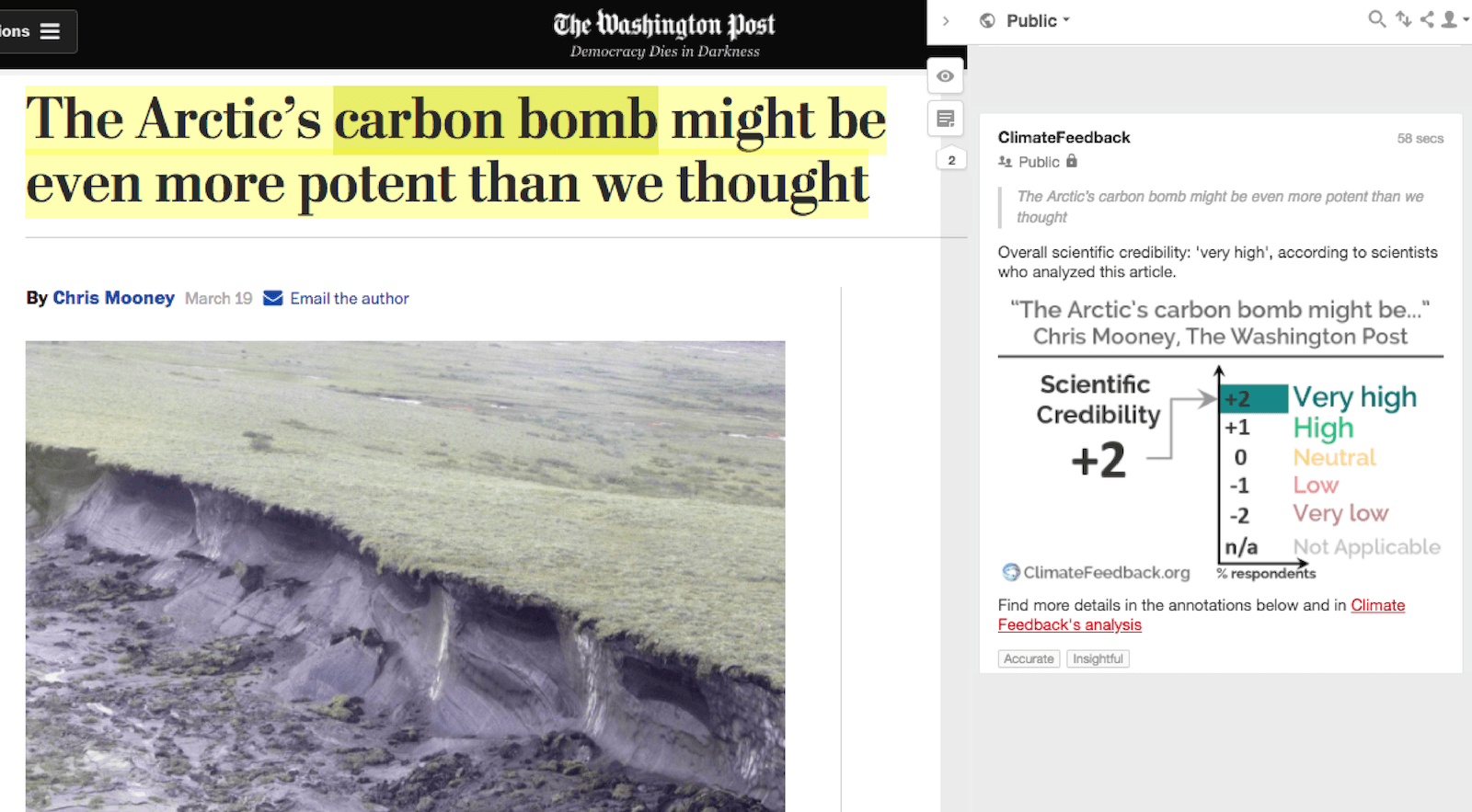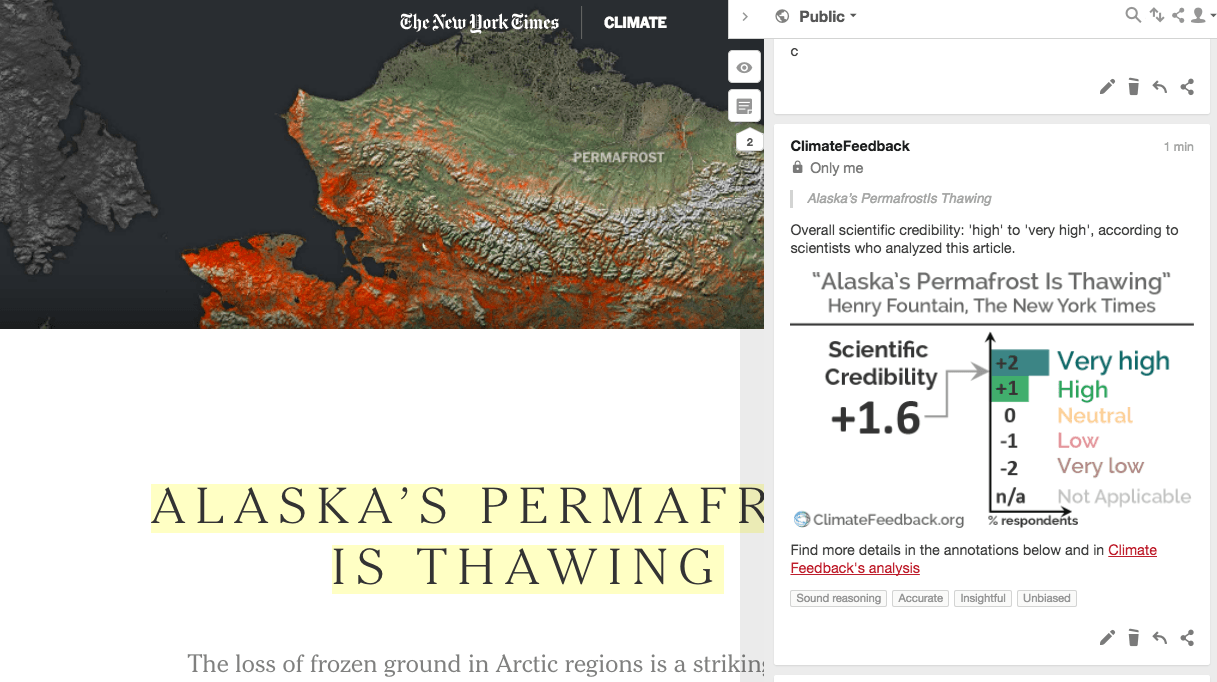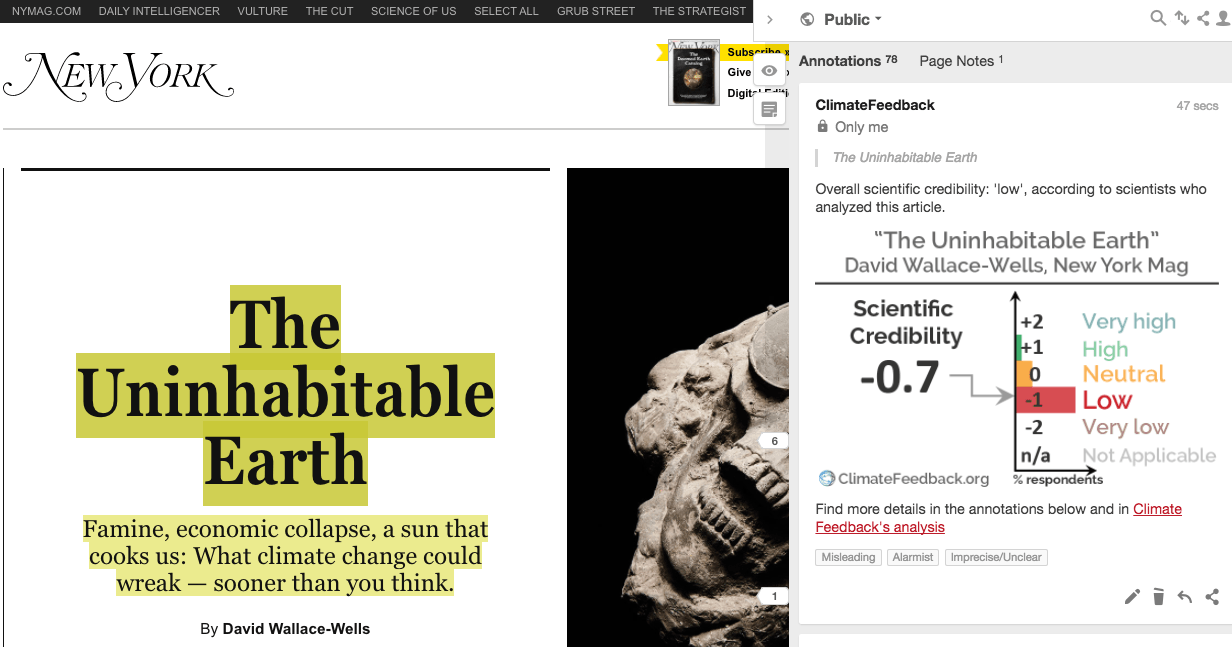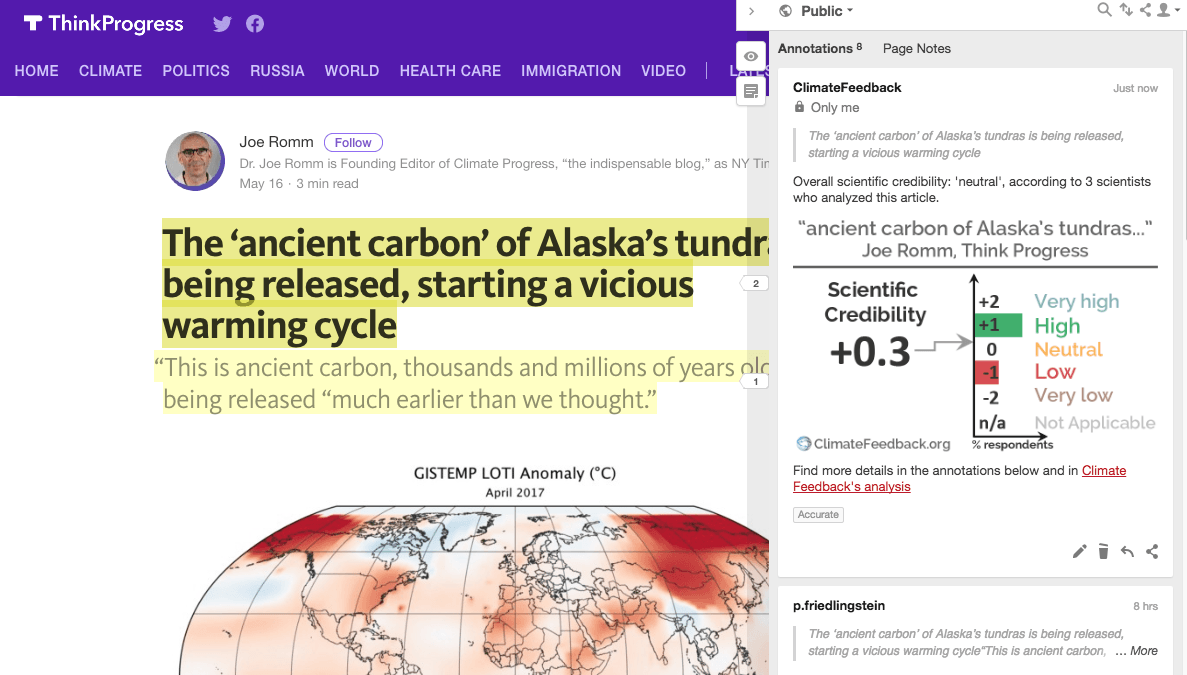.
Charles Koven
Staff Scientist, Lawrence Berkeley National Lab
Expertise: Ecosystem feedbacks and responses to climate change
Details:
![]() Hypothesis handle: cdkoven
Hypothesis handle: cdkoven
Qualifying publication(s): see criteria
![]() http://www.pnas.org/content/112/12/3752.full.pdf
http://www.pnas.org/content/112/12/3752.full.pdf
ARTICLES REVIEWED
Investor’s Business Daily editorial misrepresents study to claim plants will prevent dangerous climate change
in Investors' Business Daily, by Anonymous
— 12 Apr 2018
"Our nitrogen study does not detract from the urgency of the climate problem, nor the unequivocal evidence of the role of carbon pollution in causing global climate change. The cli..
Washington Post accurately covers permafrost study, albeit under a somewhat sensational headline
in The Washington Post, by Chris Mooney
— 22 Mar 2018
The article accurately described a study indicating that more of the carbon released from thawing permafrost will be released as methane and provided context on its overall implica...
New York Times accurately assesses the state of Alaskan permafrost
in The New York Times, by Henry Fountain
— 24 Aug 2017
"The article is accurate in its descriptions of the physical and ecological processes that are behind permafrost changes. It also does a good job of getting across the nature of th..
Scientists explain what New York Magazine article on “The Uninhabitable Earth” gets wrong
in New York Magazine, by David Wallace-Wells
— 12 Jul 2017
"While it is clear that ongoing warming of the global climate would eventually have very severe consequences, the concept of the Earth becoming uninhabitable within anywhere near t..
ThinkProgress story on thawing Alaskan tundra generally accurate but somewhat misleading
in Think Progress, by Joe Romm
— 19 May 2017
"The writing is a bit over the top, but factually correct in general. The main weakness is in linking the solidly evidence-based observed changes from the Commane et al paper with ..
CLAIMS REVIEWED
2°C is not known to be a “point of no return”, as Jonathan Franzen claims
CLAIM
The consensus among scientists and policy-makers is that we’ll pass this point of no return if the global mean temperature rises by more than two degrees Celsius
SOURCE: Jonathan Franzen, The New Yorker
Published: 17 Sep 2019
VERDICT


